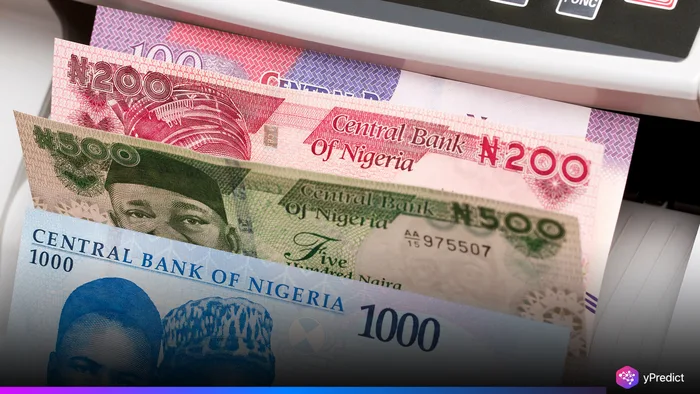
For many years now, Nigeria has depended on oil as the main driver of the economy. For decades, the price of oil globally had a direct correlation to the strength of Nigeria’s currency. When oil was going up, the Naira was usually strong. When crude prices declined, the Naira, however, declined. It appears this correlation may be declining in significance in 2025.
In recent months, market interest and behavior have shown an unexpected shift or disconnect between Nigeria’s currency and oil price change. While oil prices have been increasing around the globe, the Naira has not seen any upward momentum towards recovery. This latest shift may suggest an overall major shift in Nigeria’s economic position and raises further questions about its long-term economic stability.
Global Oil Prices Are Rising but the Naira Isn’t Following
Crude oil, which contributes more than 80 percent of Nigeria’s export revenue, has been on a steady rise since the beginning of 2025, with prices expected to remain high. However, even with the relatively high prices, the Naira has not seen the natural appreciation that would be expected. Instead, the Naira has been slowly weakening against the US dollar and the other major currencies.
This has surprised analysts. Typically, increased oil prices will increase the amount of US dollars entering Nigeria, which will boost foreign reserves and support the Naira. But for the moment, the impact of higher crude oil prices cannot stop the ongoing decline and rate volatility for the Naira.
Why Is the Link Between Oil and the Naira Breaking?
There are a number of structural and policy-driven reasons that are straining a previously healthy relationship. First, Nigeria’s oil production has been declining due to pipeline vandalism, theft of crude, and limited investments. In spite of higher prices, Nigeria’s exports are still limited, and dollar inflow on the economy is limited, even with generally higher prices.
Second, Nigeria is facing higher import costs and preserving the remaining confidence that investors have in the economy. Consequently, Nigerian demand for dollars is elevated but domestic investors are intentionally skipping between currencies. If you missed above, Nigeria is getting weaker, despite the fact that oil is increasing in price. Similarly, Nigeria’s domestic variables are now more relevant than global oil prices when considering the exchange rate.
Reforms and Market Liberalization Add Pressure
In recent months, Nigeria has moved to unify its multiple exchange rates under President Bola Tinubu’s economic reforms. While the goal is long-term stability, the transition has led to sharp short-term volatility. The central bank has reduced interventions in the foreign exchange market, letting market forces determine Nigeria’s currency value.
This shift has revealed the underlying weaknesses in the economy. The Naira’s drop is no longer cushioned by oil revenues or state controls. This openness exposes Nigeria’s currency to daily market shocks, making the oil price trend less influential.
Oil Alone Can No Longer Support the Naira
In this regard, Nigeria’s new reality is apparent: Nigeria’s economy is simply too convoluted and fragile to consider the oil sector alone. While oil remains an essential source of government revenue, it does not provide any assurance of exchange rate stability. The challenges surrounding domestic production, the volatility of policy, and inflation have all helped to displace the power of oil on the exchange rate.
For the authorities in Nigeria to realign the currency it’s going to require increased exports and switched on confidence from investors, and correction of the structural problems in the economy. The age of an economy relies only on oil to support the Naira has ended, and Nigeria needs to be proactive.
Conclusion
The future of Nigeria’s currency will come down to reforms in multiple directions. The reforms of fiscal discipline, security in oil-producing areas, and greater transparency with FX management are critical. If the necessary conditions above are not met, oil prices cannot save the Naira, no matter how high they go.
Nigeria should pursue a long-term strategy for reducing exchange-rate volatility, and an appropriate strategy would begin with strengthening non-oil exports of goods and services, reducing the inflation rate, and attracting more foreign capital. Ultimately, moving away from oil for revenue may be painful, but if the volatility in the currency is to be a thing of the past, it will have to happen. Your currency will not be durable if it relies on a single source of revenue.







